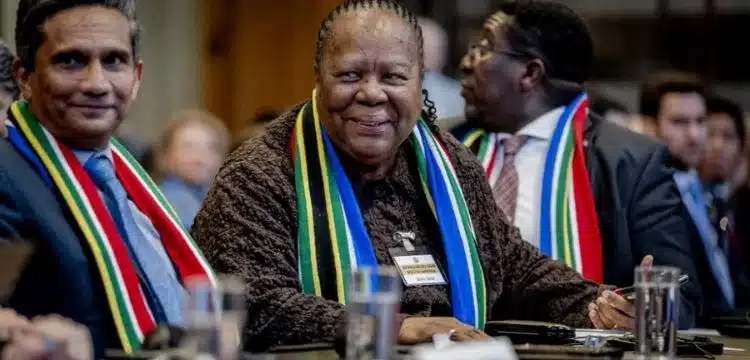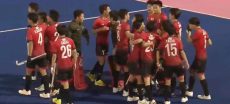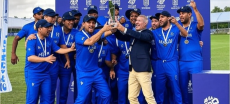[vc_row][vc_column][vc_column_text dp_text_size=”size-4″]South Africa’s pursuit of a genocide case against Israel has caused a stir among Western trading partners, but it has also elevated the country’s status as a advocate for the Global South. Despite potential discontent in Western capitals, South Africa’s gamble is expected to pay off, fueled by intensified competition for Africa’s resources and UN votes among the West, China, and Russia, particularly in the context of Russia’s conflict with Ukraine.
The International Court of Justice (ICJ) rejected Israel’s attempt to dismiss the case, directing it to prevent genocide by its troops against Palestinians. While the ICJ did not order the ceasefire South Africa sought, the decision was viewed as reasonably damning, emphasizing human rights abuses. Susan Booysen, Director of Research at the Mapungubwe Institute for Strategic Reflection, noted that this outcome enhances South Africa’s standing as an international advocate for human rights.
Read more: South Africa Dismisses Cricket Captain Over Pro-Israel Statement
While Israel’s allies may express dissatisfaction, alienating Africa’s industrial and diplomatic powerhouse, especially with China’s growing influence on the continent, would be strategically unwise for Western nations. South Africa’s role as an advocate for the Palestinians is unlikely to lead to punitive measures, given the broader geopolitical dynamics.
Despite the Gaza conflict’s global repercussions, moral support from the World Court amplifies South Africa’s position on the international stage. The ICJ ruling, though not granting all South Africa desired, is seen as a vindication of its decision to pursue the case and a strong indictment of Israeli policy, according to Human Rights lawyer Reed Brody.
South Africa presents itself as a critic of a world order it perceives as favoring the interests of the United States and its allies. President Cyril Ramaphosa has criticized the rich world for vaccine distribution during the COVID-19 pandemic. The country has actively promoted BRICS as an alternative to Western hegemony, emphasizing its role as a leading voice in global affairs.
While South Africa draws parallels between its anti-apartheid struggle and the Palestinian cause, it does not take an unequivocal stance on Russia, despite comparisons. South Africa sought a waiver to avoid arresting President Vladimir Putin for alleged war crimes in Ukraine, highlighting the complexities of its foreign policy.
The pursuit of the ICJ case aligns with South Africa’s efforts to occupy a prominent place in shaping global affairs and emphasizes its commitment to the rule of law. The country’s strong legal traditions, rooted in its anti-apartheid struggle, contribute to national pride. South Africa’s engagement in the ICJ case showcases its diplomatic acumen, positioning it as a significant player in global discussions on human rights and international justice.[/vc_column_text][/vc_column][/vc_row]











